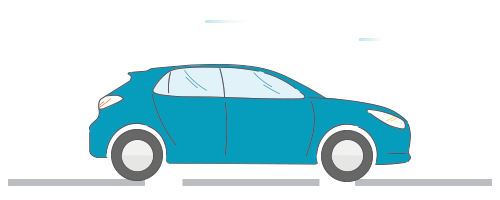The driving laws in the UK are broad and complex. Some are obvious and straightforward, such as speeding, driving under the influence and reckless driving. However, there are a number of UK driving laws you may not even know exist. In fact, you may be breaking one or two of these yourself.
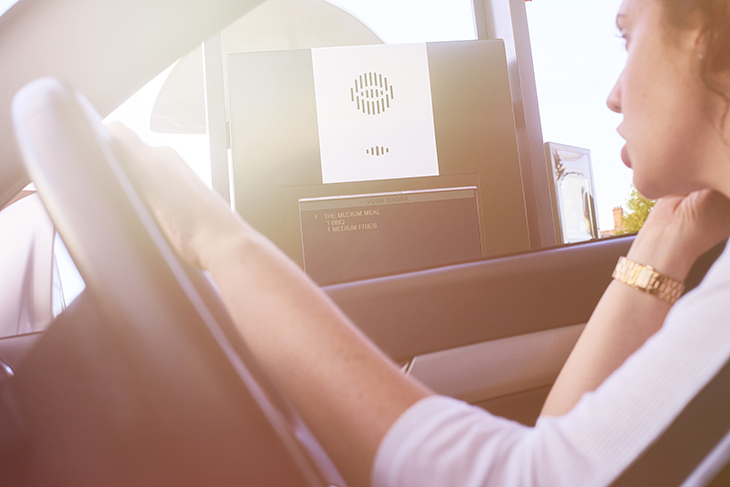
Use of your mobile phone behind the wheel is a well-known law in the UK. Whether making calls, texting, checking social media, or adjusting your sat nav, it is widely understood that phone use while driving is a big no. If caught using a phone behind the wheel, you could face £200 fine, and new drivers may lose their licence.
What you may not know is this rule also applies at a restaurant drive-through, where many people will use their smartphone payment facility to make payment. In the eyes of the law, this is still using your phone whilst operating your vehicle – it is therefore against the law!

After a night of snowfall, you will usually find yourself clearing your car windscreen, mirrors and windows of the built-up snow blocking your visibility. Driving with a windscreen covered in snow is both illegal and extremely dangerous; however, you must also clear built up snow from your roof.
If you are driving with snow on your roof, stepping on the brakes may cause this snow to be carried forward onto your windscreen, obscuring your view and creating a dangerous situation.
It is not strictly illegal to drive with snow on your roof; however, your car will quickly become illegal to drive if this snow shifts onto your windscreen.
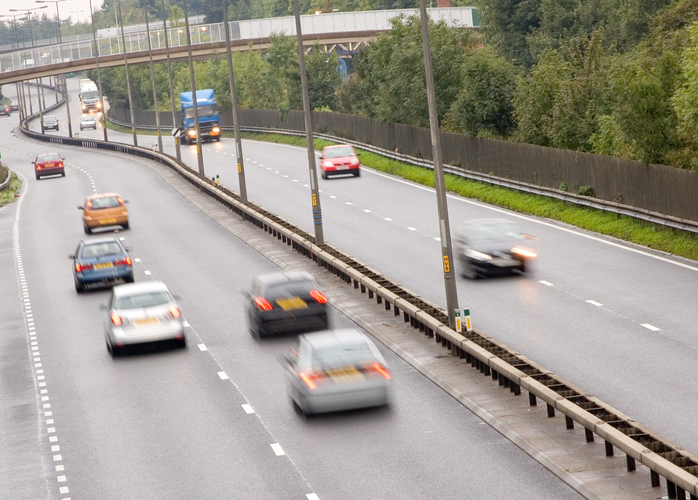
If you are a driver, you will almost certainly have faced the annoyance of other drivers tailgating you. Tailgating is when one car is driven too closely behind another while moving. This can be both unsettling for the driver ahead, but also dangerous. If the driver in front has to slow down or stop suddenly, the likelihood of a collision is huge.
Tailgating is more than simply an annoyance or irresponsible driving, it is also illegal. Tailgating is classified by UK law as careless driving and is punishable with a £100 fine. It can even result in a ban or criminal prosecution if a severe accident is caused as a result.
It is recommended that drivers leave at least a two second gap between themselves and the car in front.
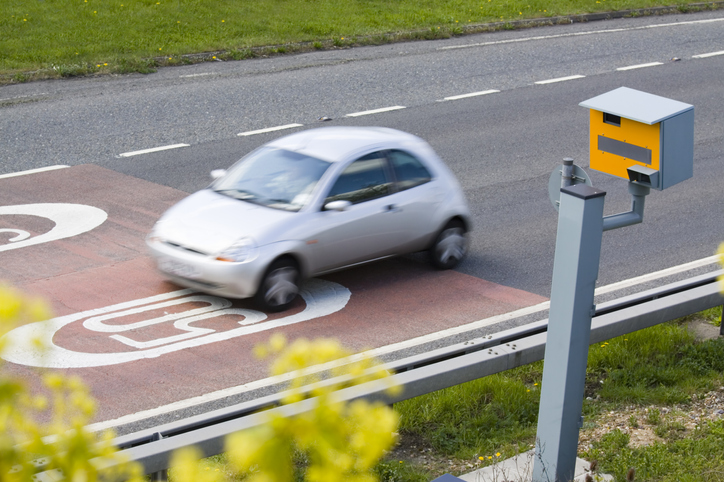
Speed cameras are in place for a reason. Speeding causes a danger to both yourself and others you are sharing the road with. It is a fairly common, yet unofficial, practice for drivers to warn others of speed cameras ahead so they can slow down and not be caught out.
A common example of this is on motorways, where a driver on one side may see a speed camera on the opposite site and flash their headlights to drivers in the oncoming lane as a warning.
It may seem like courtesy to other drivers, but this action is actually breaking two UK traffic laws. The first is improper use of headlights; you should only flash your lights to warn other cars of your presence. The second states you must not obstruct law enforcement in their efforts to tackle crime; in this instance, you would be wilfully preventing the police from catching speeding motorists.
Getting caught doing this may result in a £1,000 fine.

Taxi firms are highly regulated and must be insured and licensed appropriately before they are allowed to provide lifts for money. Needless to say, unless you are a licensed taxi driver, you aren’t allowed to give lifts for cash.
This does not mean it is illegal to ask your friends to chip in fuel money for journeys; however, it is illegal to run any kind of unlicensed scheme offering lifts for money.
One recent example of this is the recent emergence of ‘Cash for Lifts’ groups on Facebook, where users in a community offer each other lifts and car sharing. Those offering lifts may not only be invalidating their existing car insurance, but they may also be prosecuted if they don’t meet all legal requirements for the service.

Driving at speed through large puddles creates a very large outward splash. There are many reasons why you shouldn’t do this; it reduces your control over your vehicle and may cause you to hydroplane. You may also be putting sensitive internal components of your vehicle at risk.
We’ve all seen people getting soaked by cars and buses driving through puddles. It is certainly not pleasant for the pedestrian. What you may not know is that it is an offence to do so deliberately. It is considered by UK law as driving without consideration and is punishable with a fine of up to £5,000 and up to 9 points on the driver’s licence.

Horns are mandatory on all cars, and they are required for a reason: to warn drivers or pedestrians of hazards. There are a number of laws relating to proper use of your car horn, and some of these you my not be aware of.
For starters, you cannot use your car horn between 23:30 and 07:00 in built up areas. In addition, if another driver has failed to give way or is not paying attention and fails to move at a green light, giving them a quick beep is also not permitted unless there is immediate danger. Using your car horn while stationary, such as when in a traffic jam, is also not allowed.
Improper use of car horns is one of the most commonly broken traffic laws – if a driver is caught at it, they may face a fine of up to £1,000.
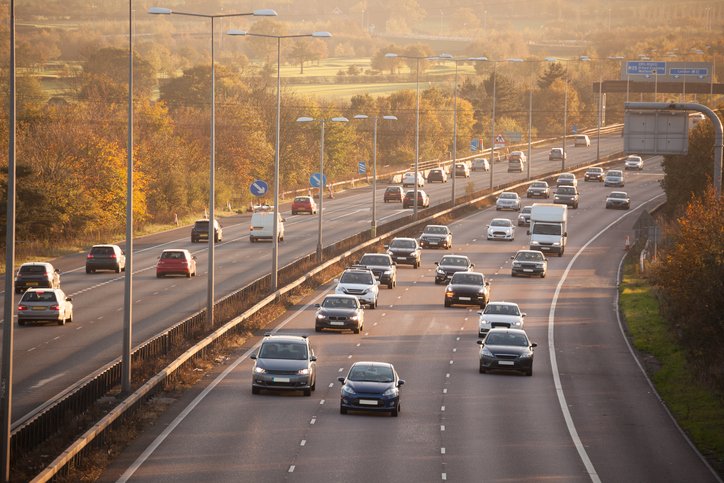
Every driver should know that speeding is a serious motoring offence. What fewer drivers may know is that it is also against the law to drive too slowly in certain areas. On some roads, driving too slowly can cause congestion and potential danger of collisions. Driving excessively slowly can cause particular issues on motorways, where a high volume of fast-moving vehicles will be in motion.
Driving too slowly will usually result in a strong word or two from a traffic enforcement officer but repeat offences may lead to prosecution for careless driving.

You might think your tunes deserve to be blasted out of your speakers at maximum volume; however, the police are likely to disagree with you.
Playing music at excessive volume while driving may be seen by police as causing a distraction and therefore creating potential dangers. If this happens, you can expect a fine of up to £100.
In addition to this, playing excessively loud music when stationary, especially in a built-up area, may be considered a public nuisance. Drivers who ignore any warnings relating to this could find their cars seized by the authorities.

With all the stresses of modern life, road rage is common. You will probably encounter it most times you drive in busy areas; you may even be a culprit yourself. There is no law against getting angry at other drivers or pedestrians.
What you may not know is it is illegal to make rude or obscene gestures to other drivers. Showing a middle finger to another driver who has irritated you could be considered disorderly conduct if seen by police. This may be punishable by up to three-quarters of a week’s salary.
For angry drivers, the best advice is to calm down a little!
Yes, the UK driving laws may be complicated; however, it is important that drivers pay as much attention and gain as much understanding as they can. A sound understanding of what is and is not permitted on the roads will make you a safer driver, both to yourself and others you share the road with. It may also save you a lot of money in potential fines.
